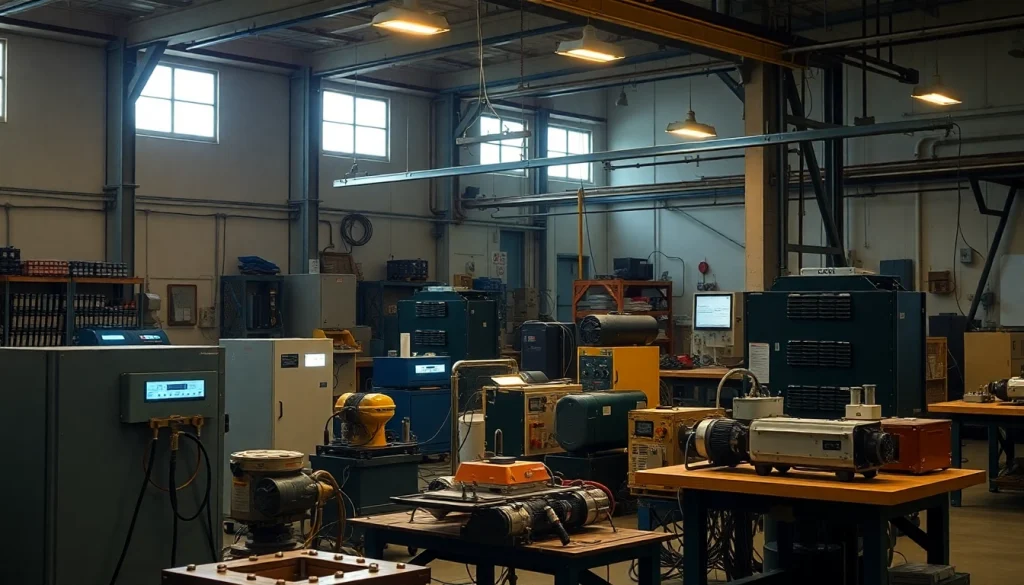Understanding Power Supply Manufacturing
Within the realms of electrical and electronic engineering lies a fundamental component that bridges generations of technology: the power supply. Whether it’s in consumer electronics, industrial equipment, or life-critical medical devices, the role of a power supply cannot be overstated. In this extensive exploration, we delve into the landscape of Power Supply Manufacturers, examining what they do, the variety of power supplies available, and how the industry is structured.
What is a Power Supply Manufacturer?
A power supply manufacturer is a company that designs, produces, and distributes devices that convert electrical power into usable forms for various applications. These devices play a critical role, providing consistent and reliable power to all electronic devices. Power supply manufacturers operate in diverse sectors, including telecommunications, computing, lighting, and industrial applications. Depending on their specialization, some might be focused on AC to DC conversion, while others may concentrate on DC to DC conversion, UPS (uninterruptible power supplies), or specific power requirements (like high voltage or low-power devices).
Types of Power Supplies Offered
Power supply manufacturers produce a wide array of products adapted for different applications. The main types include:
- AC-DC Power Supplies: These convert alternating current (AC) from the mains supply to direct current (DC). They are widely used in consumer electronics.
- DC-DC Converters: Used to convert one DC voltage level to another, useful in battery-powered devices.
- Uninterruptible Power Supplies (UPS): These provide emergency power during mains failures, critical for hospitals and data centers.
- Power Inverters: Devices that convert DC into AC power, often used in renewable energy systems.
- Open Frame Power Supplies: These are custom designs without an enclosure, allowing for integration into various devices.
Key Terms in Power Supply Production
Understanding key terminology is crucial in navigating the power supply industry. Key terms include:
- Efficiency: Refers to how well a power supply converts input power to output power, often expressed as a percentage.
- Ripple Voltage: The AC component on the output of a power supply, a critical factor in performance for sensitive electronics.
- Load Regulation: The ability of a power supply to maintain a steady output voltage under varying load conditions.
- EMI/EMC: Electromagnetic interference and compatibility are essential for ensuring devices function correctly without generating harmful disturbance.
Importance of Quality in Power Supplies
Quality in power supply manufacturing is paramount for ensuring device reliability, safety, and performance. Poorly constructed power supplies may lead to malfunctions, device failure, and even hazards such as fires.
Why Quality Matters in Power Supply Manufacturing
The consequences of subpar power supplies can be severe, including reduced performance, increased risk of regulatory non-compliance, and potential damage to connected devices. Manufacturers must adhere to strict quality standards, involving rigorous testing and certifications.
Industry Standards and Certifications
Various international standards, such as ISO 9001 for quality management systems, ISO 13485 for medical devices, and UL certification for safety, set benchmarks for power supply manufacturers. Compliance with these standards helps ensure that products are safe, reliable, and efficient.
Common Testing Procedures for Power Supplies
A thorough product testing regimen is critical in the power supply industry. Common procedures include:
- Temperature Cycling: Subjecting power supplies to extreme temperatures to assess reliability.
- Load Testing: Checking performance under different load conditions to ensure proper output voltage.
- Efficiency Testing: Measuring how effectively a power supply converts input to output power.
- Safety Testing: Ensuring designs are robust against short circuits, surges, and other electrical faults.
Finding the Right Manufacturer
Selecting a suitable power supply manufacturer is crucial. The choice impacts not only the performance of your devices but also the financial viability and reliability of your project.
Key Factors to Consider in Power Supply Selection
When evaluating different manufacturers, consider the following:
- Experience and Industry Reputation: Assess their history, customer reviews, and case studies.
- Product Range: Verify if they offer products that suit your specific requirements.
- Customization Capabilities: The ability to tailor solutions can be critical, especially for unique projects.
- Support and Service: Manufacturer support in terms of warranty, customer service, and technical assistance can influence your choice.
- Pricing: Evaluate pricing models, understanding that lower prices may compromise quality.
Top Power Supply Manufacturers in the USA
The United States is home to many reputable power supply manufacturers. Some of the notable names include:
- MEAN WELL: Known for their robust designs and wide range of products, from DC-DC converters to power supplies.
- XP Power: A leader in AC-DC power supplies and DC-DC converters, recognized for their quality and reliability.
- Wall Industries: Manufacturing power supplies since 1961, they offer a variety of products primarily targeting the North American market.
- FSP Group: Global leaders in power supply solutions, including medical-grade devices.
- Seasonic: Famous for high-quality PSUs particularly in the consumer PC market.
Questions to Ask Potential Manufacturers
Before entering into any agreements, it’s critical to ask these questions to potential manufacturers:
- What certifications do your products hold?
- What is your return policy and warranty on products?
- Can you provide references or case studies of similar projects?
- What support resources do you offer during and after installation?
- What are your lead times for orders, including custom solutions?
Customization Options Available
One of the key services provided by many reputable power supply manufacturers is customization. They can tailor products to meet specific power requirements, providing solutions beyond standard offerings.
What Custom Power Solutions Can Manufacturers Provide?
Custom power solutions can include:
- Custom voltages and currents based on precise client specifications.
- Enclosures tailored to integrate with existing equipment.
- Specific input or output connectors per project needs.
- Enhanced thermal management solutions for high-load applications.
Benefits of Custom Power Supply Solutions
Opting for customized solutions often leads to:
- Improved Performance: Tailored outputs that cater directly to the application’s demands.
- Increased Efficiency: Reduced energy waste when power supplies are matched to their respective tasks.
- Space Optimization: Custom units can be designed to fit into tight spaces, freeing up room in the manufacturing of other technologies.
- Future-Proofing: Manufacturers can adjust their designs as technologies advance or change applications, providing long-term value.
Case Studies of Successful Custom Power Implementations
Many companies have successfully leveraged custom power solutions. For example, a medical equipment manufacturer required a specialized power supply for their infusion devices. By collaborating with a seasoned power supply manufacturer, they achieved a unit that met strict regulatory standards while significantly enhancing energy efficiency, proving that strategic partnerships yield significant dividends in innovation and performance.
Future Trends in Power Supply Manufacturing
The power supply sector is dynamically evolving, impacted by technological advancements, changing regulations, and environmental concerns. As we look to the future, several key trends are evident.
Emerging Technologies Impacting Power Supplies
Innovations, such as GaN (gallium nitride) technology, promise to revolutionize power supply design by enabling smaller, faster, and more efficient devices. Additionally, digital power management solutions allow for enhanced monitoring and control, contributing to optimized performance across applications.
Sustainability in Power Supply Manufacturing
With a growing emphasis on sustainability, manufacturers are increasingly adopting eco-friendly practices. This includes developing power supplies that consume less energy, using recyclable materials, and adhering to sustainability standards like RoHS and WEEE.
Predictions for the Future of Power Supply Industry
Looking forward, the power supply industry is poised for continued growth. Advances in smart manufacturing, AI integration for predictive maintenance, and the push for renewable energy solutions are expected to shape the future landscape. As industries look for more efficient and responsible solutions, the demand for sophisticated power supply options tailored to modern technology will persist.


